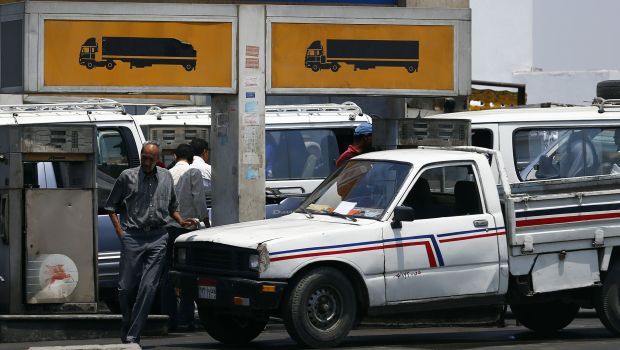The recent decision by the Egyptian government to cut fuel subsidies is a bitter medicine to swallow for the Egyptian people. Patients hoping for a quick recovery often have no choice but take the medicine prescribed, despite any concomitant unpleasant side effects that may follow. In this case, the “patient”—Egypt’s ailing economy—has been suffering from a decades-long backlog of structural disorders that have hampered its ability to achieve healthy growth. Compounding this, the past three years of political turmoil in Egypt have also severely impacted revenues from some of the country’s most significant sectors—most prominently, tourism—and drained its foreign exchange reserves. Effecting austerity measures which lead to an increase in the prices of basic commodities and services would be a most difficult decision for any government—which would always look to avoid them in order to avert the negative impact they may have on the public.
But in Egypt’s case everyone was aware—even before last month’s presidential elections—that such measures were inevitable. The international community was waiting to see whether the new regime would be serious and courageous enough to confront the problems, or if it would resort to the procrastination that was the hallmark of past governments. A repeat of the former regime’s modus operandi would have had a major negative impact on the economic and political integrity of the new regime.
It was remarkable how international observers with an eye on Egypt’s economy cautiously welcomed the recent measures to cut fuel subsidies—which the Egyptian government said alone would save the country some 51 billion Egyptian pounds (7 billion US dollars). According to some analysts, this step gives an indication as to how serious the new Egyptian government is in terms of making the right moves in this area. While much lip service has been paid over the past decade with regards to the need for such measures, no tangible steps were taken on the ground. The source of the caution stems from the fact—pretty much known to everyone—that such measures are just the beginning of a long and difficult road, one that is unlikely to win the support of the public in the short term.
The question remains, however, does Egypt have the stamina to maintain the necessary economic reforms—which require both time and wisdom—until they pay off and the people begin to reap their benefits? Will the people be patient, without causing any major political tensions? A large part of the answer lies in the extent of the trust between decision-makers and the public, as well as the media’s role in explaining the measures openly and spreading awareness among the public. Another key issue relates to the effectiveness of other steps taken to ameliorate the impact such austerity measures will inevitably have on the poor and the vulnerable.
But there is reason for optimism here. The public may end up agreeing to swallow the bitter pill, after all: Egypt now has a president who enjoys overwhelming public support, and uses a new political discourse that is serious and relies on facts, without pandering to the public and their emotions. This is not to mention that if the government provides the public— already now sufficiently aware—with the needed explanations and rationales for the measures, they will realize the gravity of the looming problems. Failing to explain things to the public has been one of the main failings of successive regimes in Egypt since the 1970s.
Egyptian President Abdel-Fattah El-Sisi seems to have cottoned on to this reality. This was clear in his recent speech to the nation when he said such austerity measures had in fact been put for half a decade because past regimes were afraid of a scenario similar to the “Bread Riots” that broke out in 1977 during the era of former president Anwar Sadat (who had also instigated similar austerity measures). How long will the government—afraid to take the necessary measures—leave the country crippled by debt, Sisi asked during the speech.
One of the main reasons behind the 1977 riots was that no one prepared the public for the decision to slash subsidies, nor even explained the reasons behind such measures. If they had, the Egyptian economy would have been in a totally different shape to the one is in today, and perhaps wealth would have spread throughout the country.
During the second half of the 1990s the government had a golden opportunity to introduce the required reforms. The situation was much less difficult than it is now both in terms of resources and it terms of the region’s political stability. But the government back then was too afraid to take the plunge. In fact, taking such a significant step is a political decision first and foremost. At the time, none of the economic officials and experts in Egypt was unaware of the solutions and procedures that should be taken in order to fix the problems. But back then it was normal for Egyptian officials to put forward such measures at conferences and forums only to stop short of putting them into practice, insisting that the people’s right to subsidies should not be compromised. That pretty much remained the status quo until the economy reached a dead-end, with wages and subsidies eating up public funds, leaving nothing available for future investment. It was the habit of former Egyptian governments to ease economic restraints by borrowing more money, whether in the form of internal or external loans, until internal debt in Egypt hit astronomical levels.
What the Egyptian government was doing here in effect was saddling the country with so much debt that it would only be cleared by the time future generations came along.

So true. I wish to add though that this move had to come from someone who knew he was backed by Egyptians. Had Morsi or even Mubarak gone that route, Egyptians would’ve gone totally berserk.